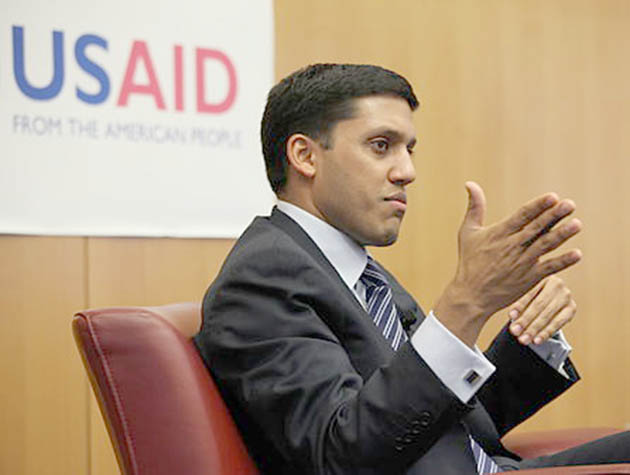
WASHINGTON, D.C. – The United States has announced $4.8 million to fund projects in over half a dozen countries, including India, to end child and forced marriages. Other countries include Nepal, Bangladesh, Burkina Faso, Ethiopia, Tanzania and Yemen. “We know the fight against child marriage is the fight against extreme poverty,” U.S. Agency for International Development Administrator Raj Shah said.

“That’s why USAID has put women and girls at the center of our efforts to answer President (Barack) Obama’s call to end extreme poverty in two generations. It’s a commitment that reflects a legacy of investment in girls—in their education, in their safety, in their health, and in their potential,” the Indian American official added.
In India, the government began implementing a conditional cash transfer program in 1994, which provided families with a small payment upon the birth of a girl as well as a bond redeemable if the girl remained unmarried at the age of 18, USAID said.
A USAID-funded evaluation will provide one of the first impact evaluations in this area to assess the effectiveness of the program in preventing child, early, and forced marriage, the statement said.
The announcement builds on larger support for girls by USAID and the Department of State through an estimated $800 million in basic education, $164 million to combat gender-based violence, and $48 million to end human trafficking in this fiscal year. The programs support implementation of “Ending Child Marriage & Meeting the Needs of Married Children: The USAID Vision for Action” to prevent and respond to child, early, and forced marriage in regions, countries, and communities where interventions are most needed and most likely to achieve results. According to a UN report, India has the sixth highest prevalence of child marriage in the world, with one in every three child bride living in the country.
In India, the government began implementing a conditional cash transfer program in 1994, which provided families with a small payment upon the birth of a girl as well as a bond redeemable if the girl remained unmarried at the age of 18, USAID said.
A USAID-funded evaluation will provide one of the first impact evaluations in this area to assess the effectiveness of the program in preventing child, early, and forced marriage, the statement said.
The announcement builds on larger support for girls by USAID and the Department of State through an estimated $800 million in basic education, $164 million to combat gender-based violence, and $48 million to end human trafficking in this fiscal year. The programs support implementation of “Ending Child Marriage & Meeting the Needs of Married Children: The USAID Vision for Action” to prevent and respond to child, early, and forced marriage in regions, countries, and communities where interventions are most needed and most likely to achieve results. According to a UN report, India has the sixth highest prevalence of child marriage in the world, with one in every three child bride living in the country.

 RSS Feed
RSS Feed
